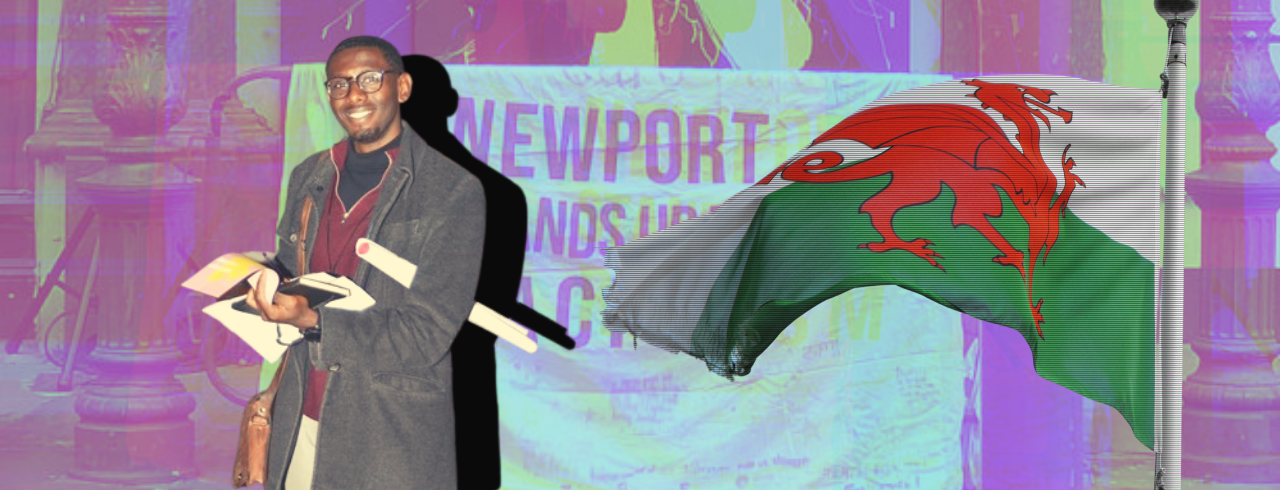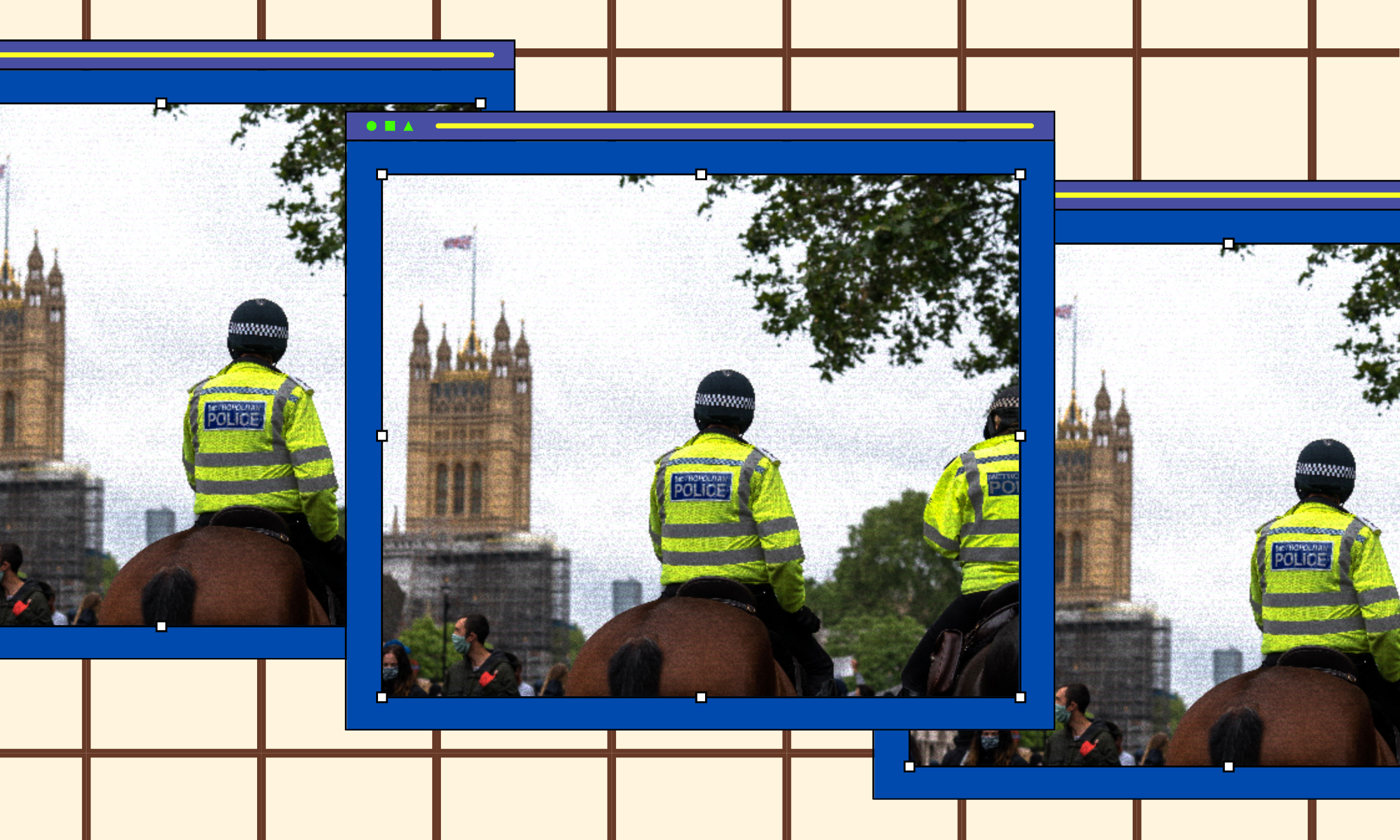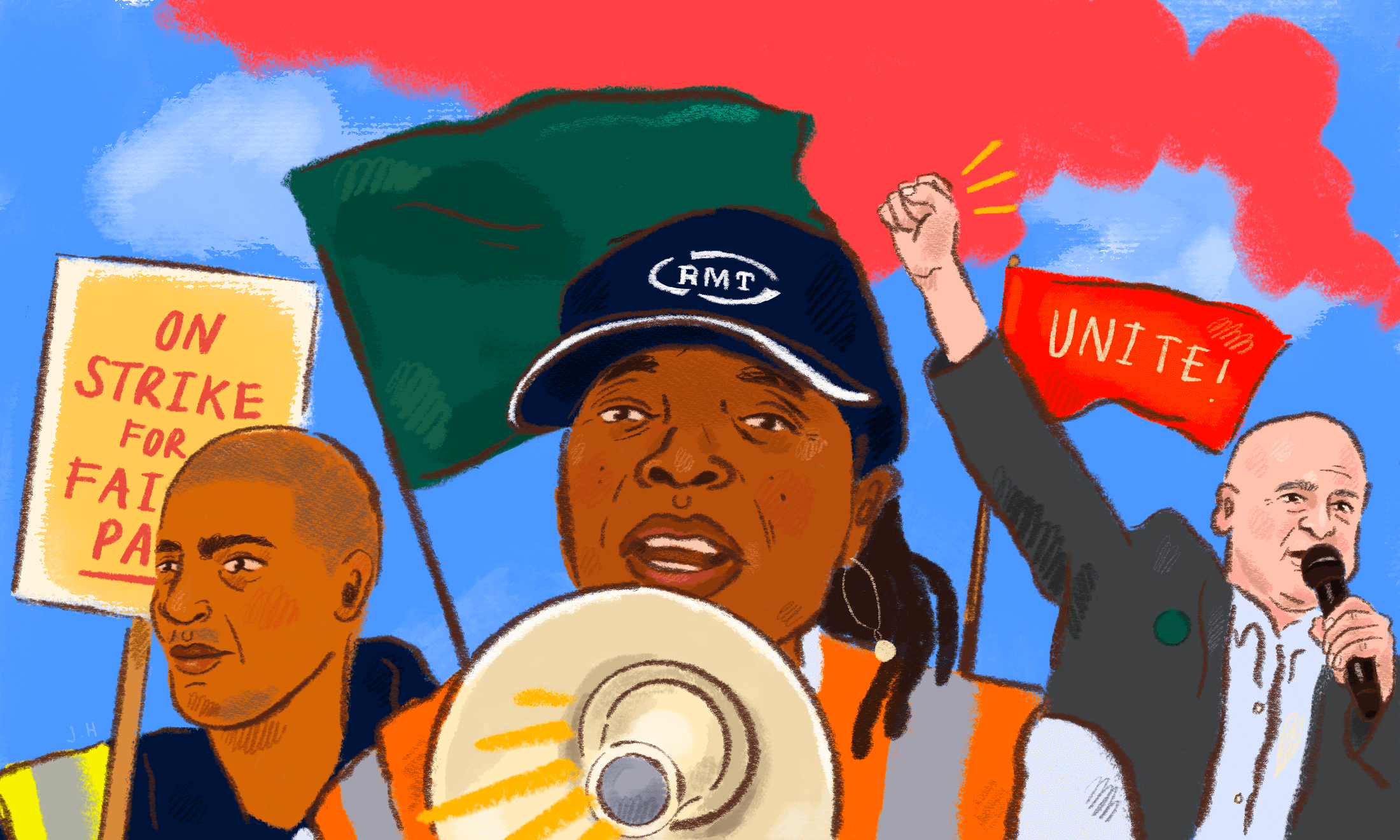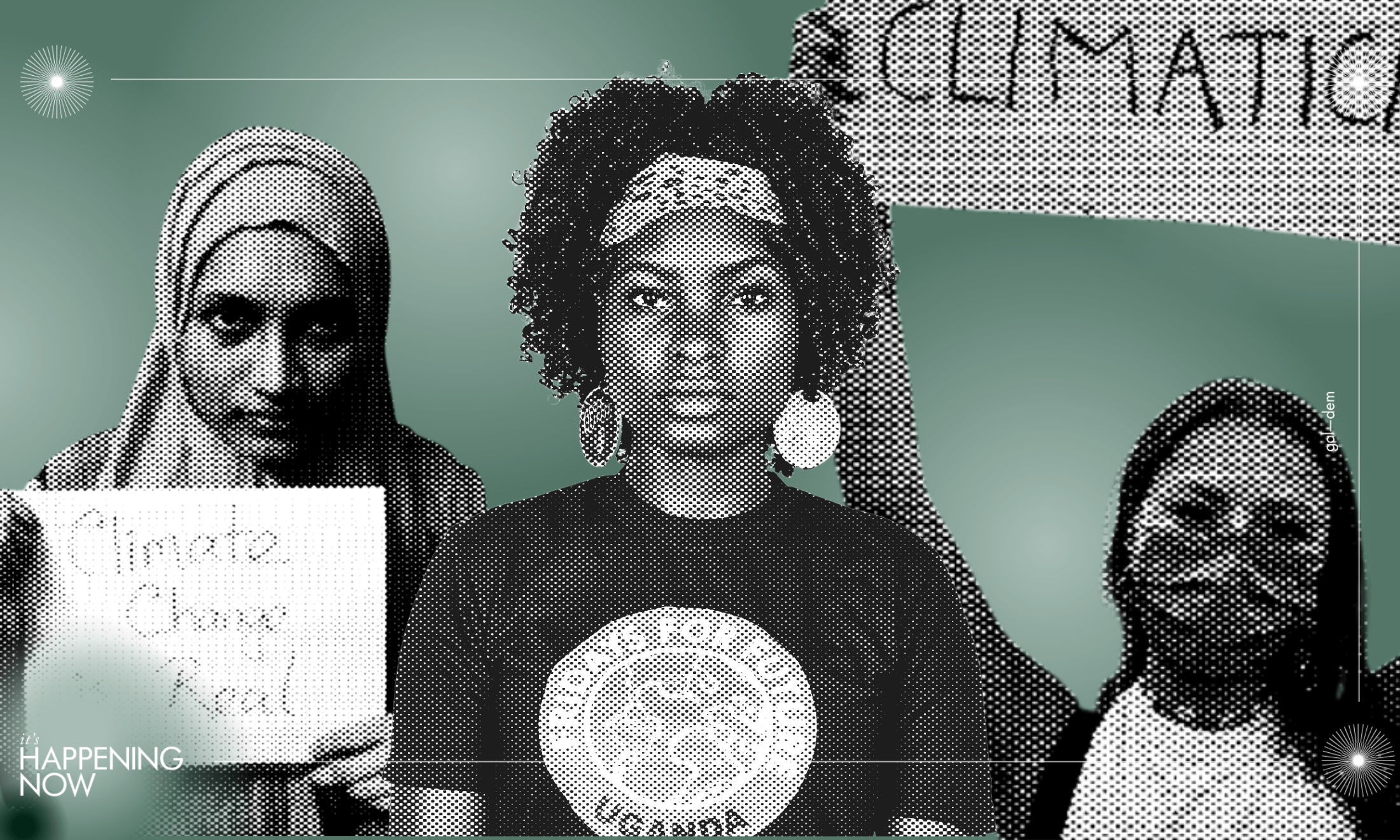
Canva/Arhantika Rebello
Welsh working class activists of colour are refusing to be ignored in 2020
Across Wales, young Black and brown people are refusing to let their political futures be whitewashed anymore.
Danielle Fahiya
08 Dec 2020
When I google the word “activist” in 2020 I am met with a flood of images of young white people. If photo evidence will inform future generations about who was on the ground, fighting for their rights, they will think it was a whitewash. Young activists of colour are actively erased from view. Who can forget the now-infamous incident where Ugandan environmental activist Vanessa Nakate was cropped out of a photo taken with white peers –including Greta Thunburg – by the Associated Press news agency?
In Wales, my home country, the activists who grab headlines are noticeably from a particular demographic. There already exists the longstanding myth that people of colour don’t exist here, so it’s little surprise their activism isn’t being noted by the mainstream. The Welsh independence campaign Yes Cymru is so whitewashed, for example, that an entire activist group – Yes Cymru PoC – has been set up to ensure Black and brown voices are heard. And all over Wales, a new wave of working class activists of colour are not settling for silence.
The Privilege Café was set up during the start of lockdown by Mymuna Soleman, a Somali woman from a working class community in Cardiff. Lockdown and the rise of video chatting gave Mymuna time and ability to kickstart the initiative.
Established as a safe space, the virtual café offers an inclusive environment to exclusively talk about race and privilege. “I was frustrated with the lack of diversity [elsewhere] and couldn’t express myself as a woman of colour in spaces filled with privilege,” explains Mymuna.
With weekly Zooms every Thursday and over 100 attendees in every session the conversations are far reaching.
“It’s a two hour Zoom session with no set agenda except for the topic,” Mymuna outlines.
“I decide on the topic beforehand [a recent example: ‘Privilege and the Prison Industrial Complex’], share it on Twitter and then sometimes people reach out to me if they want to be a guest speaker.
“I will always introduce myself at each session and establish the ground rules before kicking off the discussion”.
“My work is now impacting policy in Welsh government. They are finally listening and involving me in their anti-racist strategies”
Mymuna is very clear that the café is intended to prompt action, not solely discussion. “Tourists are banned from my space,” she says, defining “tourists” as people “who just come to listen and learn and keep coming to do that without actually using their privilege for good”.
Mymuna refers all attendees to a privileges checklist and thinks that it should be used not just before entering the virtual café but in workspaces and businesses.
Having recently been awarded funding to continue the project, Mymuna believes that involvement with grassroots action is the way to overcome entry barriers.
“My work is now impacting policy in Welsh government,” she says. “They are finally listening and involving me in their anti-racist strategies.
“Impacting policy is the most effective way to see changes rolled out. Now we are being listened to and we are feeding into important decisions being made”.
When people reach out to ask Mymuna to work with them she asks two important questions: “Why now?” and “What’s next?”. She says it’s a litmus test of sorts, to discern between those who are authentic and those who are tokenistic.
It’s not just government policies Mymuna is impacting but young people of colour too. One session resulted in new opportunities for over a dozen young working class boys of colour from Cardiff, who had suffered from overpolicing and being stigamised as “thugs”.
“Between 12 to 14 boys got jobs in the NHS because there was a session on recruitment,” Mymuna recalls.
“One of the café attendees who has a background in recruitment recognised his own privilege and the network he has been able to reach. [As a result], he was able to offer jobs to the young men”.
Elsewhere, Welsh communities of colour have taken matters into their own hands. Butetown Matters is an online community blog with an aim to use social media to raise awareness and share positive stories. It’s named after the area it represents; Butetown, commonly known as “the Docks” is an area of huge importance in conversations about the experiences of Welsh people of colour. The Docks – now renamed Cardiff Bay – have been the site of 1919 race riots and miscarriages of justice involving several innocent men of colour, including Mahmood Mattan and The Cardiff Five.
The Docks is famous for the multicultural communities that live there; Somali, Yemeni and Carribbean residents have thrived there since the 1880s.
Historically though, ethnic minority communities in Butetown have not been given the choice to be masters of their own fate. In 1987, the hugely controversial Cardiff Bay Development Corporation was set up to put Cardiff on the international map. This development was met with fear from residents that it was being created to push them out of the area with plush apartments and tourist attractions. There were also major concerns that there would be an environmental price to pay with the flood risk to homes and damage to wildlife.
Nirushan Sudarsan is one of the key voices behind Butetowm Matters, which was founded by residents in 2019 to amplify local news stories involving their area.
“There is a disproportionate amount of power held by certain organisations such as Cardiff Council who are making decisions on our area,” says Nirushan. “We need to upskill our own community leaders in Butetown who are invested in the area to be at those tables contributing to those decisions being made.” These decisions include issues like Cardiff police’s “stop and search” policies, which disproportionately target young Black and Asian individuals in Butetown.
“We realise the importance of keeping communities safe but we have had examples of when [stop and search] has been applied to young people multiple times who are simply hanging out,” Nirushan says
However in 2020, the pushback from Butetown’s younger generations has seen the tide changing. The work being done by young working class PoC is really starting to make a difference in local politics.
“I’ve seen young people do voter registration drives during [the 2019] election and take the lead in Black Lives Matters Movement,” says Nirushan. “They’ve been organising and mobilising huge numbers of people to challenge injustice and inequality which has been so promising”.
“With the advantage of social media the rules are being rewritten. I want young Welsh PoC to have a role in local politics but I want them to be more ambitious than that”
Elbashir ‘Bashy’ Idris, is one such young Butetown resident. Sudanese by birth, it was a life-changing holiday at the age of 10 that showed him the power of grassroots work.
“They were building a mosque right next to the house [I was staying in],” he remembers, adding that this is the first time he’s discussed the pivotal memory. Emotion is thick in his voice.
“I picked up a brick and started helping the construction workers. I knew the benefit it would provide for the community. Shelter, refuge, free access to water… I was just 10 [years-old]. That really inspired me.”
Bashy’s community work is spread between Butetown and his “motherland”, Sudan. He is currently in Sudan working with the authorities and has set up the Sudanese Diaspora Network (SDN) following the revolution in 2019. “Our organisation is aiming to connect the diaspora and bridge that gap between homeland and outside,” he explains.
Having arrived back in Sudan just before the Cardiff firebreak lockdown he is committed to being an active player in the reformation of the country.
“I can’t just be a person who joins a protest and not follow through with what happens and see the change I protested about. I have a firm belief that if you start something you must see it through,” he explains, passionately. Bashy is able to realise his vision through SDN, the NGO he helped found back in January 2019. The organisation aims to bring experience, connections and resources from the diaspora into Sudan.
Bashy believes that reforming local politics is the way forward for young working class PoC to be heard and make a difference – but that it’s also only the beginning. Since 2018, Bashy has been working with UK impact groups to make sure the voices of working class Welsh PoC are being heard.
“With the advantage of social media the rules are being rewritten,” he tells me. “I want [young Welsh PoC] to have a role in local politics but I want them to be more ambitious than that”.
“You can become a different type of role model that doesn’t glamourise a certain kind of lifestyle and make impacts through lobbying and campaigning for change.”
However, Bashy believes local politics is only one of the ways for young working class PoC to be heard and that life experience means just as much when making a difference.
“When you excel in your field you can go into politics,” he says. “Many people in politics never started out that way. You don’t need to be an activist to make a change”.

Britain’s policing was built on racism. Abolition is unavoidable

How Pakistan’s Khwaja Sira and transgender communities are fearing and fighting for their futures

Their anti-rape performance went viral globally. Now what?





